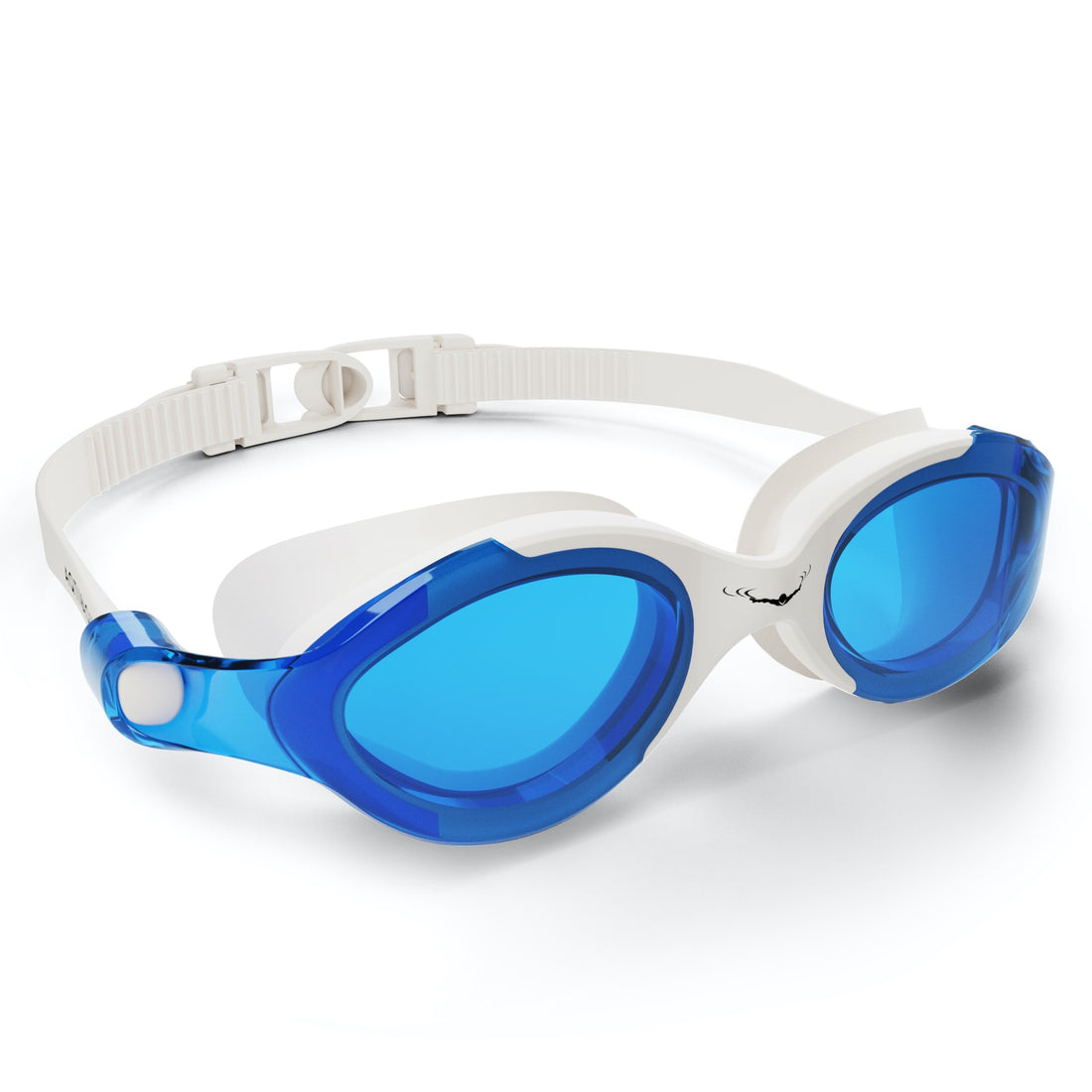Swimming is often praised for its physical benefits, but one aspect that often gets overlooked is its positive impact on mental health. Whether you're gliding through the water in a serene pool or racing across the open water, the soothing nature of swimming can provide a calming escape from the stress of daily life. In this article, we will explore the various mental health benefits of swimming, how it contributes to emotional well-being, and why investing in quality gear, like wide view swim goggles and swim caps, can enhance your swimming experience.
The Stress Relief Factor
One of the most significant mental health benefits of swimming is its potential for stress relief. The rhythmic nature of swimming, combined with the sensation of water all around you, can create a meditative experience. Here’s how it works:
Emotional Regulation
Swimming encourages deep, controlled breathing, which can counteract the body's natural stress responses. By focusing on your breath while swimming, you can help regulate emotions and calm anxiety levels. The consistent rhythm your body follows while swimming helps channel stress into a focused activity.
Natural Endorphin Boost
Physical activity, including swimming, triggers the release of endorphins—the hormones responsible for feelings of excitement and happiness. After a good swim, it’s common to feel a “swimmer’s high,” a joyful sensation that radiates throughout your day. This positive change in mood can combat feelings of depression and anxiety, making swimming a great addition to your mental health toolkit.
Improved Sleep Quality
Another key benefit of swimming that directly relates to mental health is improved sleep quality. Many individuals struggling with sleep disorders find swimming has a rejuvenating effect on their lives. Here’s why:
Physical Exhaustion
Swimming is an excellent full-body workout that utilizes muscle groups more evenly than most land-based exercises. This balanced physical exertion leads to an effective form of tiredness. After a session in the pool, particularly if you’re using equipment like swim caps to keep your focus on fluid movements, your body tends to naturally crave rest, resulting in deeper and more restorative sleep.
Stress Reduction Before Sleep
Engaging in relaxing activities like swimming before bed can help alleviate stress. Establishing a regular swimming routine can signal your body that it’s time to unwind, contributing to ease into a restful sleep state. This is especially beneficial for those battling insomnia or racing thoughts that often keep individuals awake at night.
Enhanced Social Connections
Swimming is not just an individual sport; it’s also a fantastic way to foster connections with others. Whether you’re taking swimming lessons, joining a local swim team, or simply enjoying time with friends at the pool, these interactions can lead to improvements in your mental well-being.
Community Building
Participating in group swimming classes or clubs allows you to meet people with shared interests. Building these social connections not only provides emotional support but also opens the door to shared experiences that enhance feelings of belonging and acceptance. In our fast-paced world, these connections can significantly enhance your social network.
Motivation and Accountability
Swimming with others creates a sense of accountability. When you have swimming buddies or groups you meet regularly, you are more likely to stay committed to your routine. This consistency can be beneficial for your mental health, as it provides a structured way to both socialize and stay active simultaneously.
Mindfulness and Presence
In today’s world, it’s easy to find yourself overwhelmed by distractions. Swimming offers an unparalleled opportunity to practice mindfulness, an essential component of mental health. Here’s how swimming helps in cultivating a present state of mind:
Focusing on the Moment
As you enter the pool and begin your swim, the pressures and demands of the outside world begin to fade away. Swimming requires concentration on your strokes, breathing, and overall technique. This focus on both your body and the sensations of the water helps you become present, effectively pushing aside worries and anxieties from your daily life.
Body Awareness
The practice of swimming encourages a greater awareness of your body. Paying attention to how your muscles engage and how your body moves through the water fosters a healthy connection between mind and body. This connection can help improve self-esteem and self-acceptance, thereby enhancing overall mental health.
Overcoming Challenges
Swimming is a sport filled with opportunities for personal growth. It presents challenges that can teach life skills valuable for mental health:
Building Resilience
When you first learn to swim or try to improve your technique, the obstacles encountered can be daunting. Overcoming these hurdles fosters resilience—an essential trait for managing everyday life challenges. Each lap and stroke is a testament to your perseverance, reinforcing the notion that you can conquer difficulties, both in and out of the water.
Setting and Achieving Goals
Swimming allows you to set measurable goals—whether it’s improving your time, mastering a new stroke, or completing a certain distance. This goal-setting plays a vital role in boosting confidence and encourages continued personal development, leading to greater overall satisfaction and happiness.
Swimming for Seniors: A Tender Embrace of Health
Swimming isn't just for the young; its benefits extend to seniors, significantly impacting their mental health. As we age, it’s crucial to maintain both physical and mental wellness:
Gentle Exercise
Swimming provides a low-impact workout that’s gentle on the joints, making it an ideal exercise for older adults. This gentle approach to fitness allows seniors to remain active without the risks associated with other forms of exercises, contributing to better mental well-being.
Combating Loneliness
For many seniors, social isolation can be a significant contributor to mental health struggles. Swimming in community facilities offers opportunities to meet new people and engage in a supportive environment, creating a sense of belonging that can ward off feelings of loneliness.
Protecting Your Swimming Gear
Alongside the mental health benefits, having the right equipment can enhance your swimming experience. The use of quality gear such as wide view swim goggles and swim caps not only promotes efficient swimming but also protects your health. Proper swim caps help keep hair dry and minimize exposure to chlorinated water, while wide view swim goggles aid in better visibility, supporting your focus on the overall experience.
Maximizing Comfort and Performance
Investing in top-notch gear provides both comfort and optimal performance. When you feel comfortable in the water, you can focus on your swimming only, allowing you to fully enjoy the mental health benefits of this rewarding activity. Ensuring your gear fits correctly enables you to glide smoothly through the water, leading to a more fulfilling experience.
Ready to Embrace a Swim? Dive Into Better Health!
Embracing a swimming routine is about more than just physical fitness; it’s a powerful tool for enhancing mental health. From stress relief to improved social connections, the benefits of swimming are vast and deeply enriching. The next time you put on your swim cap and slide into the water with your wide view swim goggles, remember that you’re doing more than exercising. You’re taking a significant step toward nurturing your mental well-being, one stroke at a time. So, take that leap and dive into a healthier, happier you!










